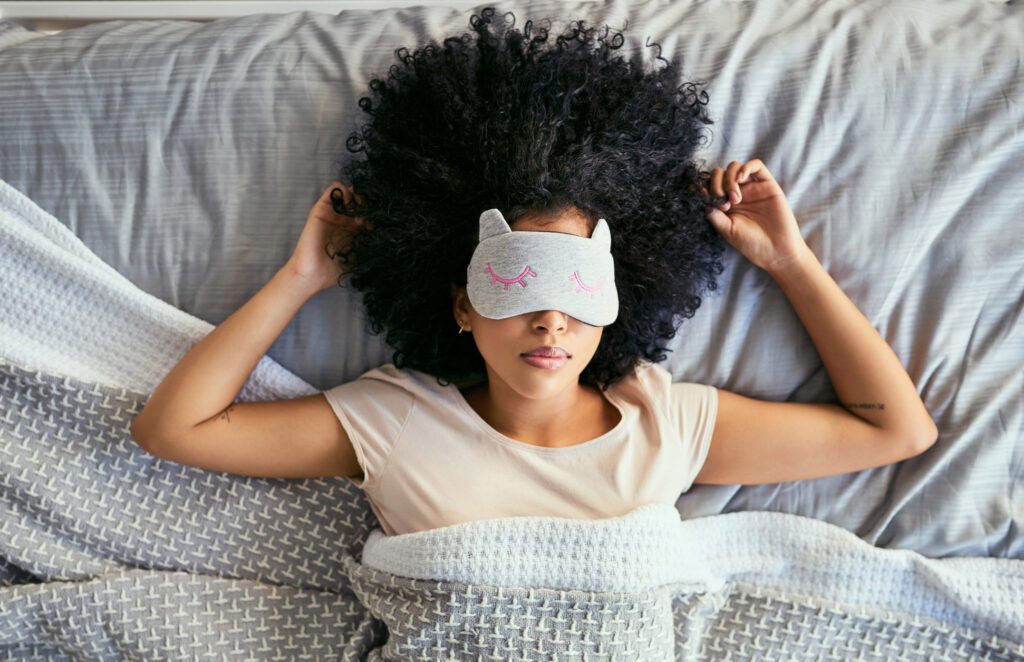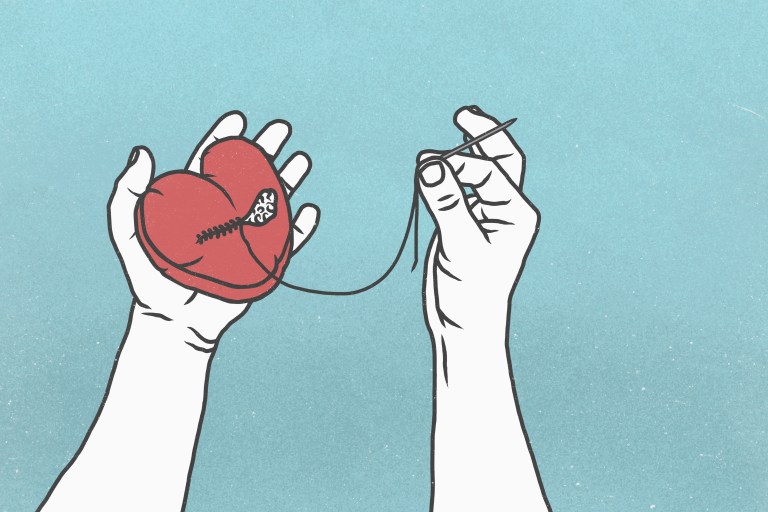The concept of love languages has been around for over three decades now. But did you know we humans also have “sleep languages”? There are five of them, and knowing yours can prove helpful in optimizing this vital biological function.
Many of us are at least somewhat aware of the importance of sleep — we’re certainly aware of how lousy we can feel when we don’t get enough. But given the many and often relentless stressors of modern life, it can be all too easy to sacrifice those Z’s in favor of checking off another item on our to-do list. To better understand why this is a bad idea, it’s first helpful to better understand what exactly sleep does for our bodies.
According to neuroscientist Dr. Maiken Nedergaard, sleep isn’t really about simply giving our tired brains a rest; in fact, the brain is actually working hard while we slumber. Among the many tasks it tackles is removing toxins during sleep. “When we sleep, the brain totally changes function,” Nedergaard told the National Institutes of Health. “It becomes almost like a kidney, removing waste from the system.”

When studying sleep in mice, her team discovered that their brain’s drainage system actually removed proteins linked to Alzheimer’s disease. University of Colorado sleep researcher Kenneth Wright, Jr. added that everything from blood vessels to our immune system undergoes a process of repair while we sleep.
Through her years of work in behavioral sleep medicine, clinical sleep psychologist Shelby Harris identified five categories of sleep personalities, or sleep languages, that most people fall into, and she partnered with the wellness app Calm to break down what they are. Incidentally, some of us may “speak” more than one, and our primary sleep language can change over the course of our lifetimes. Keep reading to learn how to get a better night’s rest based on your own sleep language.
The Words of Worry Sleeper

This sleeper’s brain is filled with “what ifs” and “shoulds” that can be about as stimulating in the middle of the night as a triple shot of espresso. It’s those random thoughts and worries that scour the past, present, and future for signs of trouble. Words of Worry sleepers struggle to turn off their brains when it’s time to get rest.
How can you combat this? Harris recommends a strong wind-down routine — reading or listening to peaceful music for example — to signal to your brain and body that it’s time to calm down. A room that’s quiet, dark, cool, and comfortable is optimal. And the scent of lavender has been proven helpful in promoting relaxation, so an essential oil or spray might also be worth a try.
Other tips: Build a consistent meditation practice so you can learn to better manage intrusive thoughts, and refrain from working, watching TV, or scrolling on your phone in bed.
The Gifted Sleeper

If you aren’t lucky enough to be one, you may know one: that lucky person who can fall asleep anytime, anywhere, and without any effort.
That said, if you think you fall into this category, take note: If you’re consistently falling asleep as soon as your head hits the pillow, or if you’re not feeling refreshed upon waking, you may actually be suffering from poor quality sleep or an underlying medical condition, like sleep apnea. Be sure to consult with your doctor if this is the case. Otherwise, even if you are a Gifted Sleeper, it’s still a good idea to practice good sleep hygiene and keep a consistent sleep routine as best you can to maintain your lucky sleep streak!
The Routine Perfectionist Sleeper

As the name suggests, sleepers who fall into this category tend to be extremely rigid about their sleep routines. The main challenge for these types is that their anxiety around not getting a good night’s sleep can prove to be something of a self-fulfilling prophecy if their usual routine is disrupted or interfered with in even the smallest of ways.
Requiring a set of “perfect” conditions for sleep generally isn’t realistic. Harris’ prescription for this sleep type: practicing mindfulness (accepting that you can’t control every variable, like a neighbor’s barking dog) and becoming more flexible by changing up the order of steps in your nighttime routine.
The Too Hot to Handle Sleeper

Find yourself frequently throwing off the covers in the middle of the night or waking up in a puddle of sweat? You may be a Too Hot to Handle sleeper. Frequently, this category applies to women going through perimenopause or menopause, but regardless of the cause, the impact is the same: Feeling too hot to fall asleep or stay asleep can be a miserable experience. And sharing your bed with someone who doesn’t suffer from the same issue can create an additional challenge.
One fairly obvious tip is to keep your bedroom extra cool. Harris also suggests looking into cooling mattress pads and sweat-wicking fabrics for bed clothes, sheets, and comforters. For individuals who can afford a more comprehensive overhaul, mattresses that retain less heat are also worth looking into. If you have a bed partner, consider using two individual twin-sized comforters instead of one large one, so that you can each honor your internal thermostat instead of struggling to find a one-temp-fits-all solution.
The Light as a Feather Sleeper

Do you wake up feeling drained? Do you feel you’re getting enough shut-eye in terms of hours, but still not reaping the benefits of a good night’s sleep? If you fall into this category, you are likely a restless sleeper or your sleep is rarely “deep” enough. There can be several causes for this, including regular use of a substance or medication that may lighten your sleep, or sleep disorders like sleepwalking, restless leg syndrome, and teeth grinding.
If you’re sensitive to light or noise, it helps to mitigate any of those conditions at night as best you can, like wearing a sleep mask, using a white noise machine, and ensuring your sleep environment is distraction-free. You’ll also want to avoid napping if at all possible, as this may be impacting your sleep quality at night, creating a vicious cycle of napping and then struggling to sleep well later.
Whether you’re a hot sleeper, light sleeper, or worrywart, if these tips and tricks don’t provide any relief, be sure to consult with your doctor in order to rule out any underlying medical conditions that may be causing or contributing to your sleep struggles.
Sweet dreams!













Pingback: The 5 sleep languages and sleep restlessness
Pingback: If You Require Less Sleep Than Most, It May Be in Your Genes - Usernames Ideas